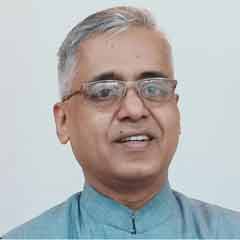As we celebrate the 166th birthday of Sree Narayana Guru, one of the greatest reformers of Indian society, it is contextual to look at his holistic world view encompassing personal finance and economics too.
More than the religious and social content of his revolutionary thinking, what is perhaps more apposite now is the priority he accorded to the values of thrift, prudence, simple living, industriousness and the importance of trade and commerce to build up a sustainable economic basis for our society.
At a time when household incomes are down, finances are stretched, jobs have been lost and the Indian economy itself has contracted, for the first time since 1978-79, the teachings of Sree Narayana Guru provide a contemporary reference guide for dealing with these issues.
Read closely the Guru’s emphasis on how society should organise its finances for the conduct of even ordinary rites and his enunciation of the objectives of the annual Sivagiri pilgrimage make for a liberating praxis for current-day economic woes.
Some of his directions have even unwittingly become part of COVID-induced protocol. Concerned by lavish marriages and the pomp of other social customs spelling ruin for households, the Guru prescribed austerity. In a declaration through “Vivekodayam”, a periodical edited by his favourite disciple Kumaran Asan, the Guru said: “The number of participants for a wedding should not exceed ten — the bride, the groom, their parents, one companion each for the bride and the groom, a priest and an important man of the locality. An elder of the village can act as the priest”.

Similarly for funeral rites, he ordained that extravagance should be avoided. “ The kith and kin of the dead shall pray for ten days to the deity of their choice after bathing early in the morning. Not more than one rupee is to be spent for buying incense etc for these ten days….it will be a worthwhile act if the money intended for feasts is donated for some charitable cause”.
Such was the practicality of the savant that once when asked about what to do with the dead — whether to bury or cremate — he is supposed to have said: “ Neither. Just use a cutter to make mince-meat of the body!” To the startled questioner, the Guru just added: “Why? Will it hurt?”. He was just underscoring the pointlessness of doctrines when it comes to the crux. COVID-19 has proved the Guru right and there is rethinking on all customs which were decidedly held to be sacrosanct.

For the idea of the pilgrimage to Sivagiri, mooted by a few of his followers, the Guru said that yellow clothes could be worn but hastened to add: “Let no one purchase yellow silk because we have recommended yellow garments. Not even new clothes are required ...A pilgrim can dip a white garment in turmeric water and wear after drying.”
He also laid down that the objectives of this annual religious journey would include the promotion of agriculture, trade, handicrafts and “technical training”. In a way, “Skill India” was conceived as early as in January 1928, in the precincts of the Nagampadam (Kottayam) Shiva temple when the details of the pilgrimage were discussed.

Sree Narayana Guru thus fused his religious teachings with the glue of practical wisdom, earthiness and the ideals of simple and unostentatious living. His values, predicated squarely on age-old Indian/Hindu spiritual wisdom, find greater resonance today as we look ahead at a period of radical uncertainty in our economy.
(The writer is a top bank executive. He writes on mainly finance and other contemporary issues. Views are personal)

















